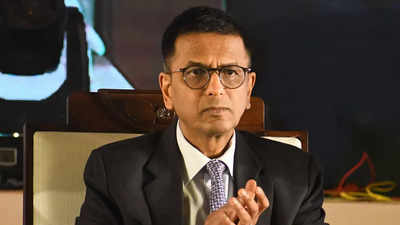
Image Source: indiatimes.com
Introduction
The recent statement by the Chief Justice advocating the government's flexibility in peace initiatives has stirred significant discussions and garnered attention across the nation. This development holds substantial implications in the realm of governance, peace-building efforts, and legal frameworks, especially concerning the prevailing socio-political landscape.
Key Points Highlighted by the Chief Justice
In a landmark speech delivered at a judicial conference, the Chief Justice emphasized several crucial aspects:
- The necessity of a flexible approach from the government's end to foster peace initiatives.
- The importance of reconciliatory measures and dialogue in resolving conflicts.
- The role of legal mechanisms and the judiciary in facilitating and supporting peace-building efforts.
- The need for a holistic approach, considering diverse perspectives and stakeholder inputs.
Significance in the UPSC Examination Context
The Chief Justice's advocacy for governmental flexibility in peace initiatives holds paramount importance for UPSC aspirants preparing for various civil service examinations. Here's why:
- Current Affairs Relevance: Understanding and analyzing recent developments, especially those involving key figures like the Chief Justice, is crucial for the UPSC examinations.
- Understanding Governance: This development sheds light on the nuanced aspects of governance, including the role of different branches of the government in conflict resolution.
- Legal Frameworks: The role of legal mechanisms and the judiciary in peace-building processes is a significant area for aspirants preparing for law-related subjects.
- Ethical and Moral Dimensions: UPSC often explores questions related to ethical dilemmas in governance and policymaking, and this development presents a case study in such contexts.
Conclusion
The Chief Justice's advocacy for governmental flexibility in peace initiatives marks a critical moment in the discourse on governance, law, and conflict resolution. This development serves as a significant learning point for UPSC aspirants, prompting a deeper understanding of multifaceted issues and their implications in the contemporary socio-political landscape.